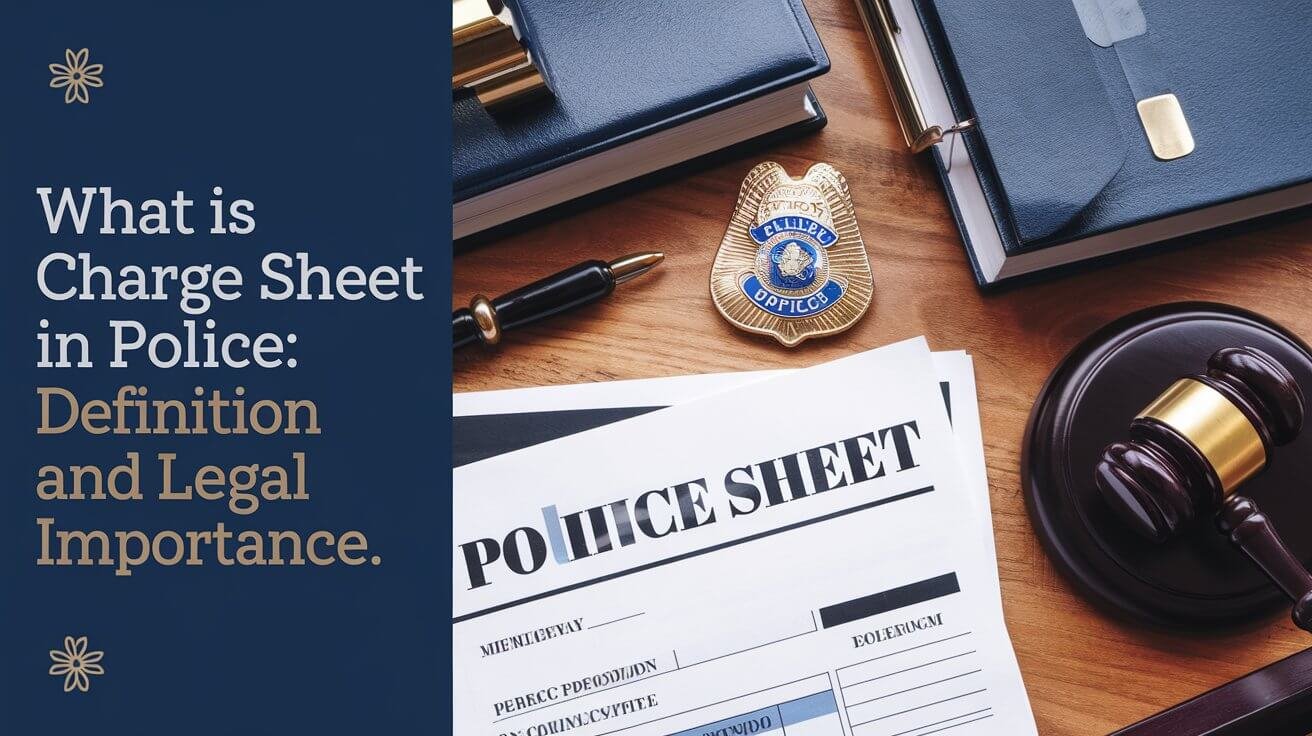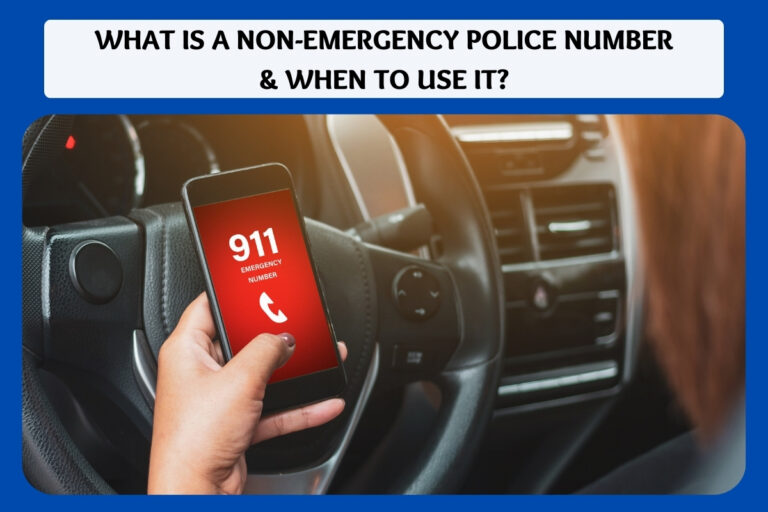What Is Charge Sheet In Police: Definition and Legal Importance

The charge sheet is crucial in criminal justice. It guides investigations and legal actions. But what is a charge sheet, and why is it so important? Exploring this document can help us understand the criminal justice system better.
Legal Foundation of Police Charge Sheets
The legal basis for police charge sheets is in Section 173 of the Code of Criminal Procedure, 1973 (CrPC). This section details what the police report must include. It covers the accused, witnesses, the charges, and the evidence for the trial.
Section 173 CrPC Requirements
Section 173 of the CrPC requires the investigating officer to submit a detailed report, known as the charge sheet. This document starts the criminal case against the accused.
Constitutional Basis for Criminal Documentation
The charge sheet is key in the criminal justice system. It tells the accused about the charges and prepares them for trial. This is based on the Constitution of India, ensuring a fair trial and the right to be presumed innocent.
Role in Criminal Justice System
The charge sheet connects the investigation and prosecution phases. It informs the accused of the charges and helps the trial court make a fair judgment.
Here’s the content from the image in a table format:
| Statistical Data on FIR and Charge Sheet in Relation to Legal Foundation |
|---|
| – The Supreme Court of India stresses the importance of quick FIR filing. This strengthens prosecution cases and maintains credibility. |
| – After investigation, a charge sheet is filed. The police must complete their work without delay, as Section 173(1) CrPC states. |
| – For serious crimes like rape, the investigation must finish within two months of the FIR. |
| – An FIR can be filed by the victim, anyone who knows about the incident, or a bystander. |
| – The investigating officer is responsible for preparing and filing the charge sheet, based on their investigation. |
| – The FIR starts the criminal justice process but is not enough to convict someone. |
| – The charge sheet is important for prosecution but is not enough evidence for conviction. It just begins the trial. |
| – Even after the charge sheet, further investigations can happen. New evidence can lead to additional charge sheets, ensuring justice is pursued without delay. |
What Is Charge Sheet In Police
A charge sheet is a detailed document that lists criminal accusations against people. It is made by police and proves the allegations in court. The charge sheet includes important details like who is accused, what they are accused of, and their current status.
Charge sheet is different from an FIR (First Information Report). It officially accuses people of crimes mentioned in the FIR. This starts the legal process against them. It’s key to the criminal justice system, showing the alleged crimes and the evidence found by police.
The charge sheet is very important in court. It is the base of the prosecution’s case. It lists the charges, the laws broken, and the evidence. The court then decides if the case should go to trial.
Charge sheet is a vital tool for police. It makes sure the justice system works right and fairly. It gives a clear and accurate report of the crimes. This helps ensure the accused gets a fair trial and victims get justice.
Essential Components of a Police Charge Sheet
A police charge sheet is a detailed document made by law enforcement after a case is investigated. It’s key in the criminal justice system, showing the main facts and evidence found. The charge sheet has important parts that help prove a case in court.
Accused Details and Witness Information
The charge sheet must list the accused’s name, age, address, and other important details. It also includes the names and contact info of witnesses who gave statements or were interviewed.
Crime Classification and Sections
The charge sheet clearly states the crime(s) the accused is charged with. It also mentions the law sections that apply. This helps the court understand the crime’s nature and seriousness.
Evidence Documentation Requirements
The charge sheet must detail all evidence collected, like physical items, witness statements, and forensic reports. This ensures the court has all the evidence to support the charges against the accused.
| Essential Components | Description |
|---|---|
| Accused Details | Name, age, address, and other relevant personal information |
| Witness Information | Names and contact details of all witnesses interviewed |
| Crime Classification | Specific crimes the accused has been charged with |
| Relevant Sections | Applicable sections of the law for the alleged offenses |
| Evidence Documentation | Comprehensive record of all physical, forensic, and witness evidence |
Time Frames and Filing Procedures
In India, the police have to follow certain rules when filing a charge sheet. For crimes that can lead to less than 10 years in jail, they have 60 days. But for more serious crimes, like life imprisonment or the death penalty, they have 90 days.
The charge sheet is filed by the Officer-in-Charge of the police station. It’s given to the Magistrate who has the power to handle the case. This marks the start of the prosecution phase, as Section 173 of the Code of Criminal Procedure (CrPC) says.
The charge sheet must have a detailed report of the evidence found. It includes witness statements and other important information. If the police think they have enough evidence, they can arrest the accused and bring them to a Magistrate, as Section 170 of the CrPC states.
It’s very important to follow the time limits for filing the charge sheet. If the police miss these deadlines, the accused might get “default bail”.
| Offense Type | Time Frame for Charge Sheet Filing |
|---|---|
| Offenses punishable with imprisonment less than 10 years | 60 days from the date of registering the FIR |
| Offenses punishable with imprisonment more than 10 years, life imprisonment, or death penalty | 90 days from the date of registering the FIR |
Distinction Between FIR and Charge Sheet
The criminal justice system uses two important documents: the First Information Report (FIR) and the police charge sheet. They have different roles and legal meanings.
Initial Report vs. Final Investigation Document
An FIR is the first report of a crime, filed at the start of an investigation. It records the complainant’s claims and starts the investigation. The police charge sheet, on the other hand, is the final report after the investigation is finished and evidence is gathered.
Legal Weight and Implications
The charge sheet has more legal weight than the FIR. It formally accuses people of crimes and starts criminal court proceedings. The FIR, though, is mainly for gathering information and doesn’t have the same legal weight.
Procedural Differences
- An FIR can be filed by the victim, their family, or anyone who knows a crime has been committed.
- A charge sheet can only be made by the officer leading the case.
- The charge sheet must be filed within sixty to ninety days after the investigation ends.
- It’s not allowed to file a second FIR, as it could violate the accused’s rights and be illegal.
The FIR and police charge sheet have different roles in the criminal justice system. The FIR starts the investigation, while the charge sheet formally accuses and starts criminal court proceedings.
Rights of the Accused During Charge Sheet Filing
The filing of a criminal charge sheet is a key moment in India’s justice system. The accused have certain rights to protect their interests and ensure a fair trial.
One key right is knowing the charges against them. The charge sheet must clearly state the alleged crimes, the law sections broken, and the evidence. This helps the accused plan their defense.
Also, the accused can seek default bail if the charge sheet is late. The law says the charge sheet must be filed within 60 days for less serious crimes. For more serious ones, it’s 90 days. If it’s late, the court might grant bail.
The accused can also get legal help during this time. They can hire a lawyer to look over the charge sheet, question it, and speak for them in court. This legal support is vital for defending their rights and ensuring justice.
It’s worth noting that statements from Section 161 of the Criminal Procedure Code (CrPC) are in the charge sheet but can’t prove guilt or innocence directly. These statements add to the investigation but are not as strong as other evidence.
Rights of the accused during the charge sheet filing are vital. They help keep the justice system fair and transparent. These rights protect the individual’s rights and ensure justice is served.
Role of Investigating Officers in Charge Sheet Preparation
Investigating officers are key in making the police charge sheet. This document outlines a criminal investigation’s details. They collect evidence, keep records up to date, and check everything to make sure the charge sheet is correct.
Evidence Collection Protocols
Officers must follow strict rules when gathering evidence. They document the crime scene, keep physical evidence safe, and get statements from witnesses. They make sure all evidence is handled carefully and its history is kept to make it admissible in court.
Documentation Standards
The charge sheet must meet strict standards, as the Code of Criminal Procedure (CrPC) says. Officers record the crime, the accused, and the investigation. They gather info on the crime, who was involved, and any arrests or bonds.
Verification Procedures
Officers must check the charge sheet’s accuracy. They verify the information, match witness stories, and make sure the evidence proves the accused’s guilt. The police station’s head files the charge sheet with the right magistrate.
Preparing the charge sheet well and on time is vital in the justice system. It affects a case’s outcome. Officers must be professional and honest to uphold justice.
Court’s Authority in Charge Sheet Review
When a police charge sheet reaches the court, the Magistrate checks it carefully. They make sure all legal steps were followed and there’s enough evidence. This is to ensure the case against the accused can move forward.
The Magistrate can choose from three options after reviewing the criminal charge sheet:
- Accept the charge sheet as filed
- Reject the charge sheet if it is found to be inadequate or deficient
- Order further investigation to gather additional evidence or clarify specific aspects of the case
The Magistrate cannot judge the accused’s guilt or innocence until the charge sheet is submitted. This rule comes from the case of R.R. Chari v. State of U.P.. Their job is to make sure the charge sheet laws are followed before the trial starts.
| Action | Description |
|---|---|
| Accept Charge Sheet | The Magistrate finds the charge sheet complete and legal, allowing the case to go to trial. |
| Reject Charge Sheet | The Magistrate spots problems in the charge sheet, like missing evidence or mistakes. They send it back to the police for more work. |
| Order Further Investigation | The Magistrate thinks more investigation is needed to make the case stronger. They tell the police to get more evidence or clear up parts of the criminal charge sheet. |
Default Bail and Time Limitations
When it comes to filing a charge sheet, there are rules about default bail. Section 167(2) of the Code of Criminal Procedure (CrPC) says if the police don’t file a charge sheet on time, the accused might get default bail. This rule applies to crimes that aren’t punishable by death, life imprisonment, or a minimum of 10 years.
The Supreme Court stresses the value of personal freedom and the need for quick investigations. The law says an accused can’t be held for more than 90 to 60 days if the police can’t finish their work in that time. This rule helps ensure police work fast and don’t abuse their power.
But, once a charge sheet is filed, even if late, the accused loses their right to default bail. The court decides if the accused gets released based on the bail order. Police can also ask to cancel the default bail, as seen in the case of T. Gangi Reddy. This shows the accused doesn’t have a guaranteed right to bail.
The rules on filing charge sheets and default bail are changing, with new court decisions adding clarity. For example, a May 12, 2023 order made it clear that courts can grant default bail without relying on the Ritu Chhabria judgment. This judgment had told police to hold off on default bail applications.
Bottom Line
The charge sheet is key in the police system. It connects the investigation to the prosecution in India. Knowing about charge sheets is important for everyone, like police, lawyers, and those accused.
Starting with the First Information Report (FIR), the charge sheet details evidence and charges. This process is vital for criminal cases. It helps in fair justice and protects the accused’s rights.
As India’s laws change, understanding charge sheets is more important. It helps keep justice fair for everyone. This ensures the rule of law is upheld and justice is delivered to all citizens.
Frequently Asked Questions
What is a charge sheet in police?
A charge sheet is a key legal document in India’s criminal justice system. It’s the final report by law enforcement to prove a crime in court. It ends the investigation and starts the legal case against the accused.
What is the legal foundation for charge sheets?
Charge sheets are based on Section 173 of the Code of Criminal Procedure, 1973. This section outlines what the police report must include. It covers details about the accused, witnesses, charges, and trial information.
How does a charge sheet differ from an FIR?
An FIR is the first report of a crime. A charge sheet is the final report that formally accuses someone of a crime. The charge sheet is more important because it starts the legal case.
What are the essential components of a police charge sheet?
A charge sheet has key parts. It includes details about the accused and witnesses, the crime type, and the law sections involved. It also has evidence collected during the investigation.
What are the time frames for filing a charge sheet in India?
For crimes with less than 10 years in jail, the police must file the charge sheet in 60 days. For more serious crimes, like life imprisonment or death, it’s 90 days.
What are the rights of the accused during the charge sheet filing process?
The accused have important rights. They must know the charges against them. They can seek default bail if the charge sheet is late. They also have the right to legal help and to question the charge sheet in court.
What is the role of investigating officers in charge sheet preparation?
Investigating officers are key in making the charge sheet. They gather evidence, keep records, and check everything carefully. This ensures the charge sheet has all needed information.
What is the court’s authority in charge sheet review?
After the charge sheet is filed, the court reviews it. The Magistrate can accept, reject, or ask for more investigation. This ensures there’s enough evidence and all legal steps are followed.
What is the impact of not filing a charge sheet within the specified time frame?
If the charge sheet is late, the accused might get default bail under Section 167(2) of the CrPC. But, if the charge sheet is filed later, the right to default bail is lost.






